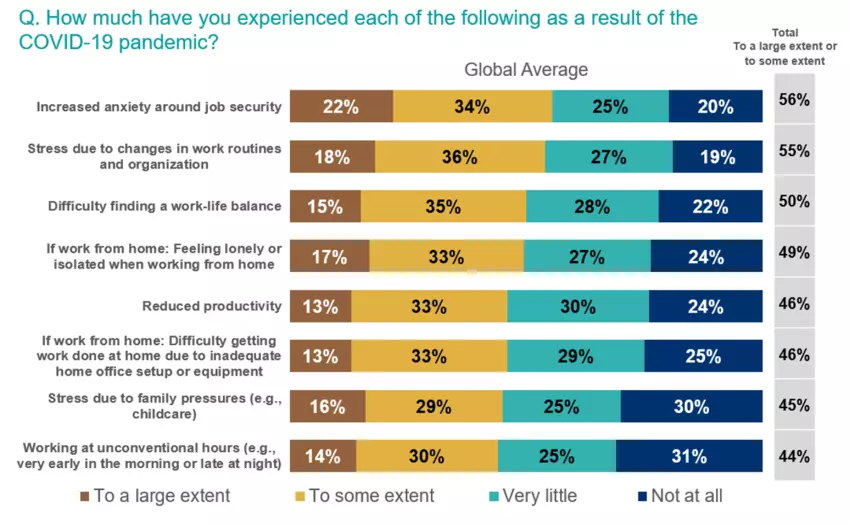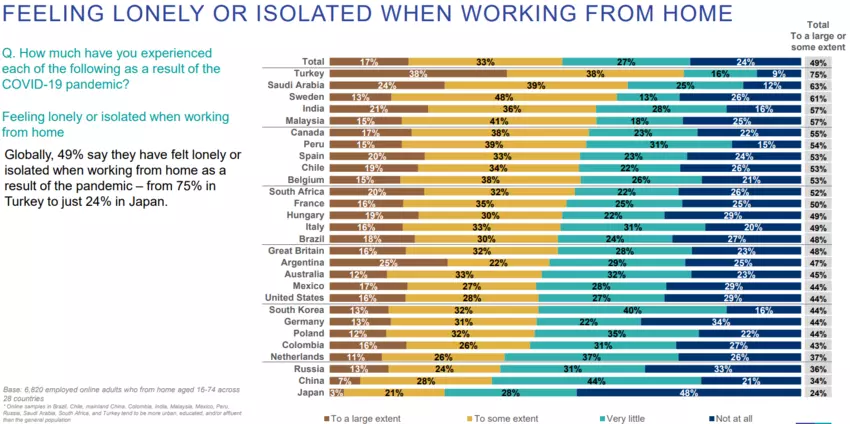
- COVID-19 prompted about 30% of employed adults to take a leave of absence, according to a new World Economic Forum-Ipsos survey.
- 56% experienced increased anxiety around job security.
- 55% found changes in work routines and organization stressful.
- Almost half of all surveyed felt lonely or isolated when working from home.
- More than 40% said their productivity fell and it was hard to get work done at home.
Stress, anxiety and loneliness have increased among working people, according to a new survey, underscoring the ongoing toll of the COVID-19 pandemic.
More than half of working adults experienced anxiety relating to their job security and stress due to changes in their working patterns.
With the virus continuing to affect every region of the world, the results shine a light on the widespread disruption to life and show how the effects go beyond physical health, to mental health and everyday working patterns.
Among those able to work from home, family pressures, finding a work-life balance and feelings of loneliness and isolation were cited as increasing as the pandemic disrupted lives and interrupted long-established practices.

Some are affected more than others
While for some, there are upsides to working from home, such as a reduced commute and more personal time, there are also limitations. And much of the global workforce has little or no opportunity to work remotely, with jobs requiring machinery or person-to-person contact.
More than half of the people surveyed between 20 November and 4 December worked from home, while 32% worked longer hours, 32% worked shorter hours, 30% took a leave of absence and 15% left their job.

Others reported falling productivity, working very early in the morning or very late at night and difficulties in getting work done due to inadequate home office set-up.
The report also showed variations from country to country. While around half of respondents said they felt lonely when working remotely, this varied from 75% in Turkey to just 24% in Japan. Most countries showed more than 40% of home workers feeling isolated.
An expensive mental health legacy
COVID-19 is likely to leave a legacy of mental health problems, according to work by the University of Sydney and the World Economic Forum, which explored how past economic crises had a ‘scarring’ effect on the mental health of young people. It suggested that the right interventions and investments could help mitigate the impact.
“The projected cumulative cost of lost productivity associated with psychological distress, hospitalizations and suicide over the period 2020-2025 is estimated at $114 billion,” the researchers, including Jo-An Atkinson, Head of Systems Modelling and Simulation, University of Sydney and Cameron Fox, Project Specialist, Shaping the Future of Health and Healthcare at the Forum, wrote.
The two institutions say there is some opportunity to bring down those costs, with targeted action. Of the interventions simulated, employment programmes were the single most effective strategy for mitigating the adverse mental-health impacts of the COVID-19 crisis.












